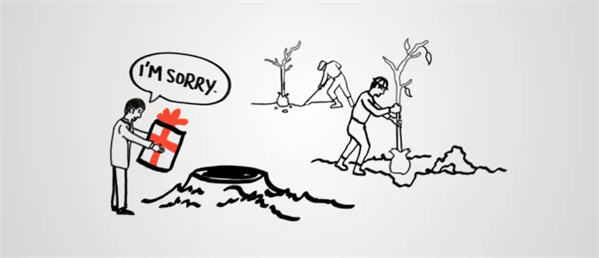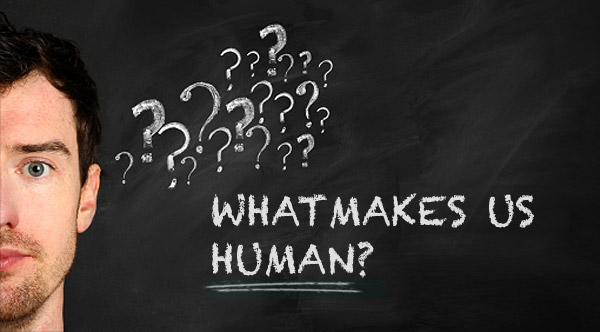

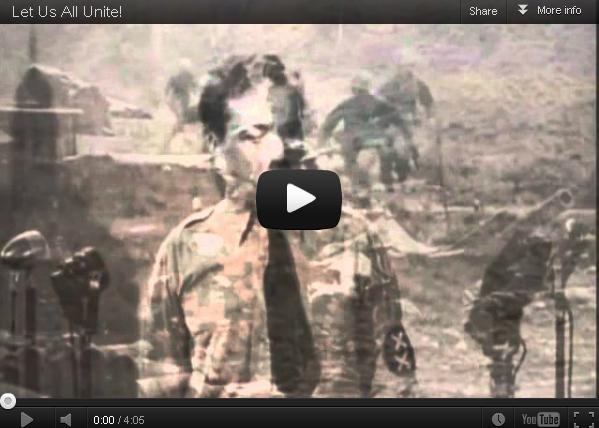
Let Us All Unite! – Charlie Chaplin’s Speech From The Great Dictator
I’m sorry but I don’t want to be an Emperor, that’s not my business. I don’t want to rule or conquer anyone. I should like to help everyone if possible, Jew, gentile, black man, white. We all want to help one another, human beings are like that. We want to live by each other’s happiness, not by each other’s misery. We don’t want to hate and despise one another. In this world there is room for everyone and the good earth is rich and can provide for everyone. The way of life can be free and beautiful. But we have lost the way. Greed has poisoned men’s souls, has barricaded the world with hate; has goose-stepped us into misery and bloodshed. We have developed speed but we have shut ourselves in. Machinery that gives abundance has left us in want. Our knowledge has made us cynical, our cleverness hard and unkind. We think too much and feel too little. More than machinery we need humanity. More than cleverness we need kindness and gentleness. Without these qualities, life will be violent and all will be lost. The aeroplane and the radio have brought us closer together. The very nature of these inventions cries out for the goodness in men, cries out for universal brotherhood, for the unity of us all. Even now my voice is reaching millions throughout the world, millions of despairing men, women and little children, victims of a system that makes men torture and imprison innocent people. To those who can hear me I say “Do not despair”. The misery that is now upon us is but...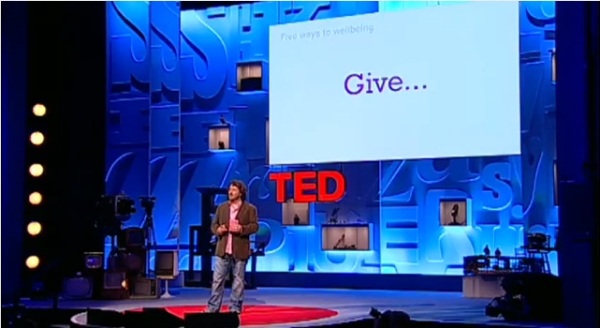
5 Things To Do Everyday To Be Happier
You can do an experiment where you give two groups of people a hundred dollars in the morning. You tell one of them to spend it on themselves, and one on other people. You measure their happiness at the end of the day. Those who spent on other people are much happier than those who spent it on themselves.” — Nic Marks Founder of the Center for Well-Being, an independent think tank at the New Economics Foundation, in London, Marks is particularly keen to promote a balance between sustainable development and quality of life. To investigate this, he devised the Happy Planet Index, a global index of human well-being and environmental impact. The results made headlines: People in the world’s wealthiest countries, who consume the most of the planet’s resources, don’t come out on top in terms of well-being. Which raises the question: What purpose does unfettered economic growth serve? 5 Things To Do Everyday To Be Happier According to Marks’ analysis of well being and happiness, what are the 5 things you should do every day to be happier? 1. Connect Connect with the people around you. With family, friends, colleagues and neighbors. At home, work, school or in your local community. Think of these as the cornerstones of your life and invest time in developing them. Building these connections will support and enrich you every day. 2. Be Active… Go for a walk or run. Step outside. Cycle. Play a game. Garden. Dance. Exercising makes you feel good. Most importantly, discover a physical activity you enjoy and one that suits your level of mobility and fitness. 3....![The Recipe For A Better World: 21 Billion Hours Of Online Gaming Per Week [TED Talk]](http://www.mutualresponsibility.org/wp-content/uploads/2012/09/recipe-for-a-better-world.jpg)
The Recipe For A Better World: 21 Billion Hours Of Online Gaming Per Week [TED Talk]
If we want to solve problems like hunger, poverty, climate change, global hunger, and obesity, I believe that we need to aspire to play games online for at least 21 billion hours a week by the end of the next decade.” Jane Mcgonigal, Ph.D., a game designer, has been making online games for over ten years, and she has a plan. Her goal for the next decade is to make it as easy to save the world in real life, as it is in online games. Right now, we spend 3 billion hours a week playing online games, she says. But according to McGonigal’s research at The Institute for the Future, that’s not nearly enough to solve the world’s most urgent problems, because gamers are a human resource that we can use to do real world work” and “games are a powerful platform for change.” When I look forward to the next decade” she shares, “I know two things for sure: that we can make any future we can imagine, and we can play any games we want. So I say, let the world changing games begin.” Watch Jane McGonigal’s Ted talk [20 min.] about how gaming can make a better world: http://www.youtube.com/watch?v=dE1DuBesGYM Why Are Games So Essential To The Future Of Humanity? The first thing gamers get good at according to McGonigal is “urgent optimism,” extreme self motivation, the desire to act immediately to tackle an obstacle, combined with a belief that we have a reasonable hope of a success. Secondly, gamers are virtuosos at “weaving a tight social fabric.” “It takes a lot of trust to play a...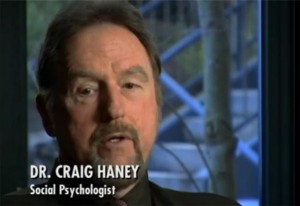
Stanford Prison Experiment Shows How The Abuses At Abu Ghraib Could Be Perpetrated By Otherwise Good People
Dr. Philip Zimbardo, Professor Emeritus of Psychology at Stanford University, and who once conducted the now famous Stanford Prison Experiment, recently related the results of that 1971 experiment to the abuse discovered at Abu Ghraib. He said, When the images of the abuse and torture in Abu Ghraib were revealed, immediately the military went on the defensive saying it’s a few bad apples. When we see people do bad things we assume they are bad people to begin with. But what we know in our study is: there are a set of social psychological variables that can make ordinary people do things they could never have imagined doing.” The Stanford Prison Experiment was conducted over a six day period in a mock prison environment in the basement of one of the buildings at Stanford University. It demonstrated how ordinary people can perpetrate extraordinary abuses when placed in a cruel environment without clear rules, as shown in this short documenatry [13 min]. What Happens When You Put Good People In Evil Places? Dr. Craig Haney, a social psychologist participating in the Stanford experiment said of it, We frankly didn’t anticipate what was going to happen. We tried to really test the power of the environment to change and transform otherwise normal people. Much as Milgram had changed or transformed otherwise normal people in an obedient situation, we wanted to do it in a prison-like situation.” Experiment Participant Relates To The Guards At Abu Ghraib Dave Eshelman, who played the role of a prison guard in the Stanford University mock prison experiment, said of the Abu Ghraib prisoner abuse photos, What...